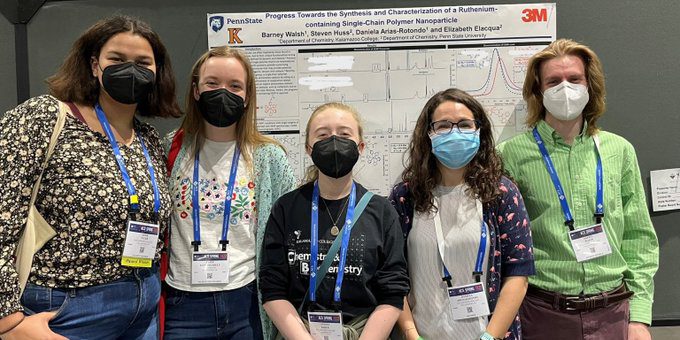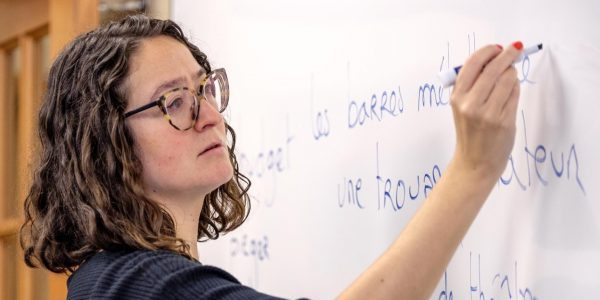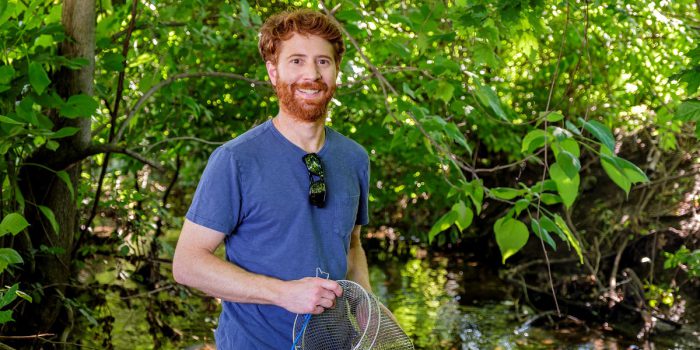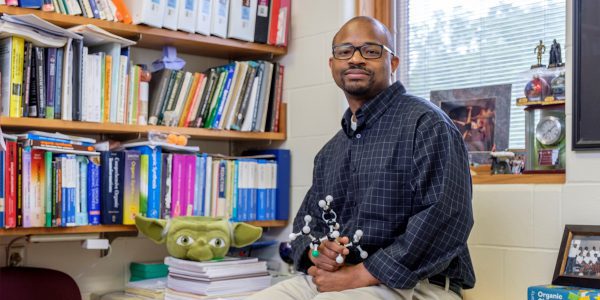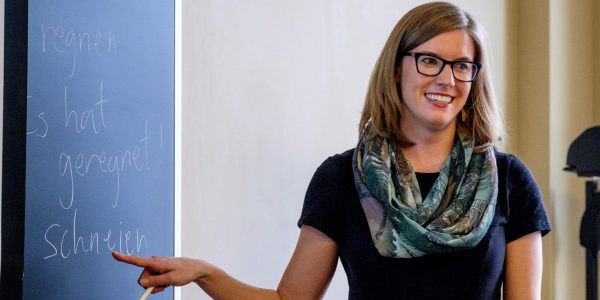Here you will find information on several parts of the research process, given to you by your fellow faculty.
Factors to Consider Before Starting the Grant Application/ Research Process
Does it Make Sense at this Point in your Career?
- Assistant Professors need to begin or continue research to earn tenure. It is most common to start by building upon or deepening dissertation research, but can also take the form of new ideas or collaboration with scholarly colleagues.
- Dr. Rojas continued her research from her dissertation in hopes of writing a book. “The book has always been my goal and is necessary for my tenure.” -Assistant Professor of History, Rochelle Rojas
- Dr. Pillai expanded upon her research from her dissertation to write a book. “I’ve been very inspired by the outstanding work of my fellow professors in the religion department and I thought my first year at K would be a good time to get the ball rolling on writing a book based on my dissertation.” -Assistant Professor of Religion, Sohini Pillai
- Associate Professors often continue researching, exploring new research topics, and applying for grants for the betterment of the campus community.
- Dr. MacLean applied for the NEH grant in hopes of helping to bolster the entire language department at K. “The NEH grant supports part-time faculty who teach in the language program. It allowed us to offer a wide variety of languages this year (Spanish, French, German, Chinese, Japanese, Arabic, Hebrew, Greek and Latin) so that students had a lot of choice as to how they completed that requirement. This grant also covered up to 30 student workers in the languages, including Visiting International students and degree-seeking students.” -Associate Professor of Spanish, Katie MacLean
- Dr. Fong began working on the project “Undisciplining the Victorian Classroom” in response to a series of real-world events. “Our project saw the importance of undertaking that work specifically in the classroom and the necessity of creating resources for instructors in our field to remedy the gaps in our training around race. I was eager to join because pedagogy and issues of creating a more diverse and inclusive curriculum has been central to my work at K College. We also started the project because of the immense national and global challenges that crystallized in 2020 around race, including the murder of George Floyd and the COVID pandemic.” -Associate Professor of English, Ryan Fong
- Professors pull from their past teaching and researching experiences to create projects that are new and exciting to them.
- Dr. Mills became involved in the pedagogical practice of oral history through a GLCA Digital Humanities Grant built on a culmination of his writing and teaching. “First, of course, my teaching and writing is centered in the humanities, especially in the power of storytelling to effect change individually and collectively. More specifically, I have done traditional scholarship on the work of literary and social reformers such as Lydia Maria Child, Frederick Douglass, Harriet Jacobs, and Margaret Fuller, including two of my books Cultural Reformations: Lydia Maria Child and the Literature of Reform and Poe, Fuller, and Mesmeric Arts: Transition States in the American Renaissance.” -Professor of English, Bruce Mills
Should You Work with Colleagues?
- Collaborative Projects:
- “Once I heard about the Mellon Grant opportunity, I talked with Francisco Villegas and Shanna Salinas concerning how we might imagine a project that spoke to the Humanities for All Times initiative, especially as it related to place-based learning, social justice, and the power of storytelling related to location and dislocation. Given their ongoing teaching and scholarship, I felt that I could contribute my background in the digital humanities, thus my deciding to pursue grant with them.” -Dr. Bruce Mills, recipient of the Mellon Foundation Grant
Support During the Grant Application/Research Process
Get connected with Director of Faculty Grants & Research at K
- “It was actually [the director of faculty grants] who alerted me when the NEH put out the announcement. She and I brainstormed on various occasions and she was instrumental in creating a workable budget proposal. In the end, the grant application was approved at the funding level requested.” -Professor Katie MacLean, recipient of the NEH Grant
- “It was important to work with the Office of Research, Fellowships, and Grants in the beginning to get a sense of the background for this grant and, more generally, how Mellon worked with colleges like ours and what they tended to look for and value.” -Professor Bruce Mills, recipient of the Mellon Foundation Grant
Dr. Rachel Love can help find grant opportunities, research grant opportunities, brainstorm, and can give feedback on any grant documents.
Reach Out to Colleagues
- “I can’t tell you how helpful the other faculty members in the religion department have been with helping me navigate the process of transforming my dissertation into a book.” -Dr. Sohini Pillai
Get Students Involved
- “I currently work with 11 students in my lab. While I’m the one who comes up with the projects (the “big questions” we try to answer), they are the ones doing the experimental work, and their input and observations are invaluable.” -Dr. DAR
- “Students are involved with many ‘hands-on’ aspects of data-collection that are the ‘meat’ of the grant work.” -Dr. Michael Wollenberg, recipient of a National Science Foundation Grant
- “Much of the knowledge and expertise that I have developed around pedagogy and inclusive curricula comes as a result of my work in the classroom with my students.” -Dr. Ryan Fong

